NatureBarrels, Bulldozers, and Billionaires
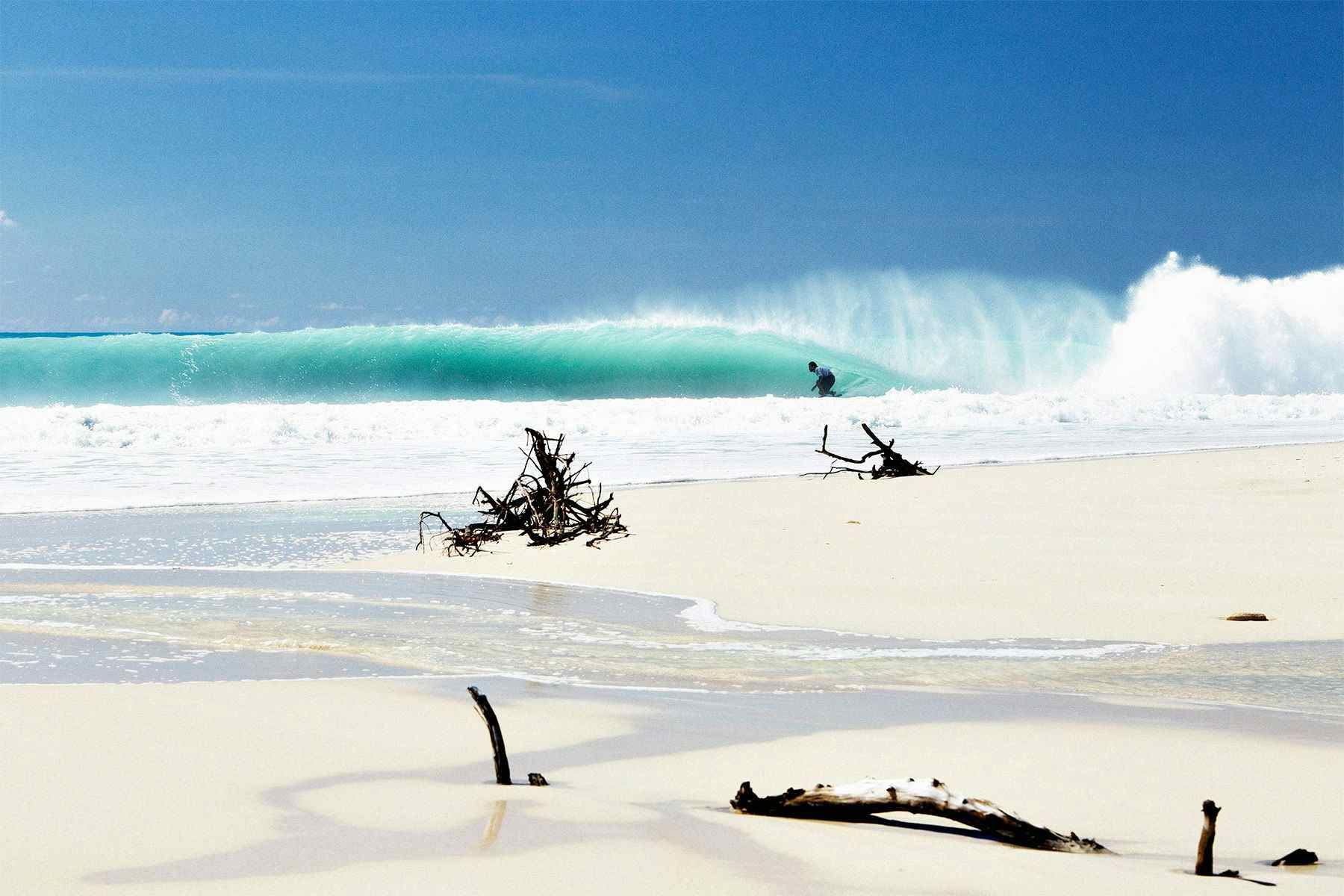
The Fight To #SaveBarbuda
Crystal clear warm waters, salmon-pink sand, cylindrical barrels. In the mind of any surfer, a place like this is best left untouched. But when you add that it sits on the fringes of a protected wetland, an ecosystem that has been victim of rampant devastation over the years, keeping it as it is goes beyond a mouth-watering capriciousness – it is an urgency.
Not for everyone, it seems.
Back in 2013, the break of Palmetto Point in Barbuda came to the attention of the surf world following the release of a short-film that depicted the perfection of the wave to the T. But the point holds much more than an idyllic wave and paradisical aura. A peninsula located on the south-west tip of the island, Palmetto Point is the main source of fresh water for the abutting Codrington Lagoon, a region whose fragile systems were designated a wetland of international importance by the Ramsar Convention, not only for supporting an array of marine and mammals species (including the endangered Leatherback turtle), but also the local economy through its lobster fishery and eco-tourism surrounding the nesting colony of frigate birds. Not to mention the vegetation’s role in fending off land erosion caused by increasingly frequent and intense storms, and sea-level rise.
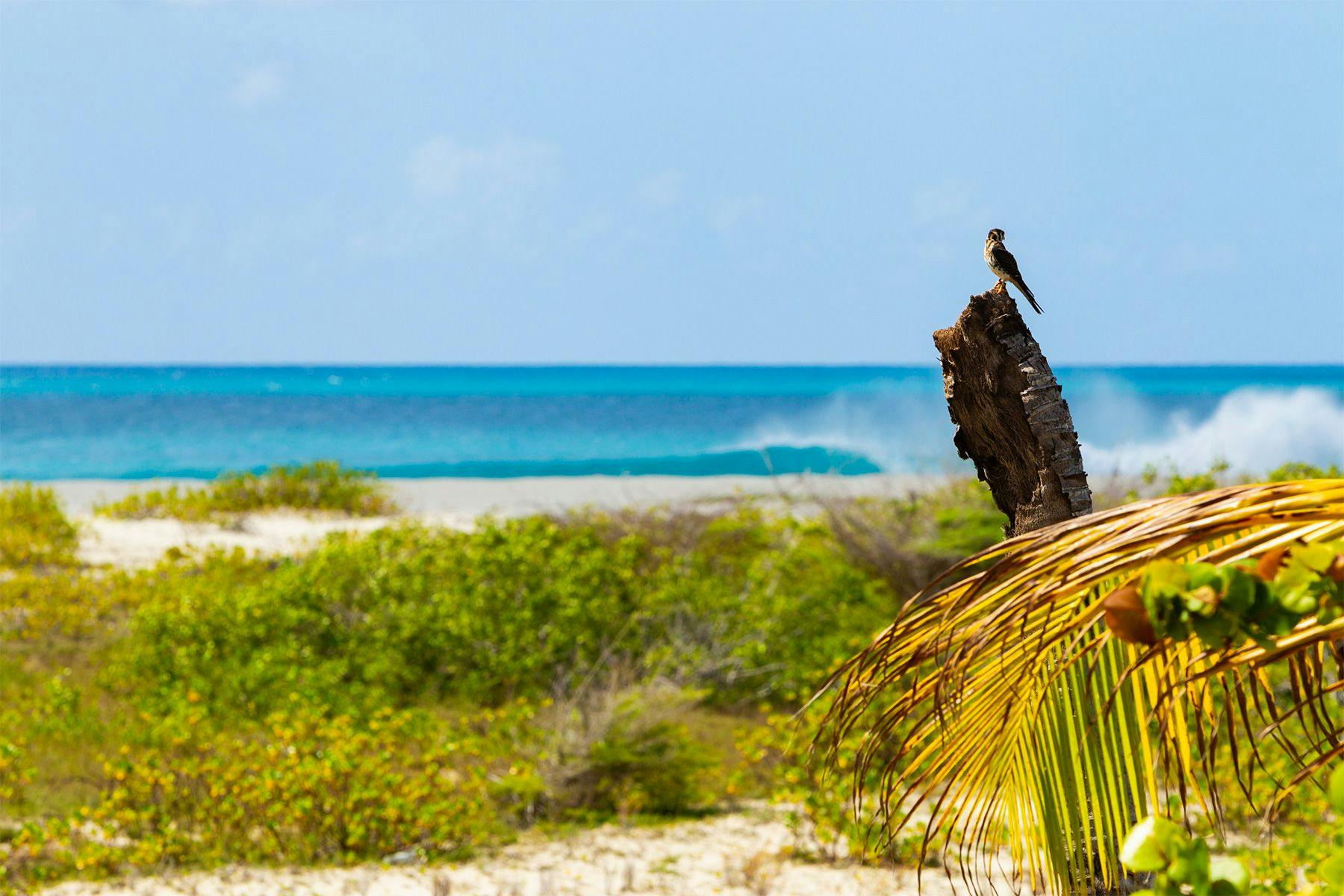
Back then, the aforementioned video was probably the first thing that came up if you typed “Palmetto Point Barbuda Surf” on Google search. Now, those words will introduce the website of the Barbuda Ocean Club – a 700-plus acre exclusive, oceanfront luxury resort. Led by billionaire John Paul DeJoria’s Peace, Love, and Happiness (PLH) foundation and Mike Meldman’s Discovery Land Company, the project blueprints over 450 residences, a golf course, and beach club to boot. Both the plan presented for the 2016 referendum and a dubious clause in the 2017 lease signed by a former pro-development council chief have raised concerns among locals, many of whom oppose the project. Nevertheless, land has already been cleared at Palmetto Point, and construction of a new international airport are underway.
Click here to watch a satellite time-lapse showing coastal development at Palmetto Point, Barbuda.
Beyond environmental implications, these developments also threaten the island’s socio-political dynamics. Barbuda is one of the last places in the world to have a collective land ownership system; since the abolition of slavery, all land-related issues, including the granting of concessions for land and development projects, have been managed by the democratically elected Barbuda Council under the Barbuda Land Act. This has ensured that locals are entitled to a plot of land, whilst also avoiding an overdeveloped, privatised landscape, the likes of which have been the fate of many Caribbean islands. Consequently, the deal that was struck for Barbuda Ocean in spite of the Act has been considered by many as an act of land grab from the local people.
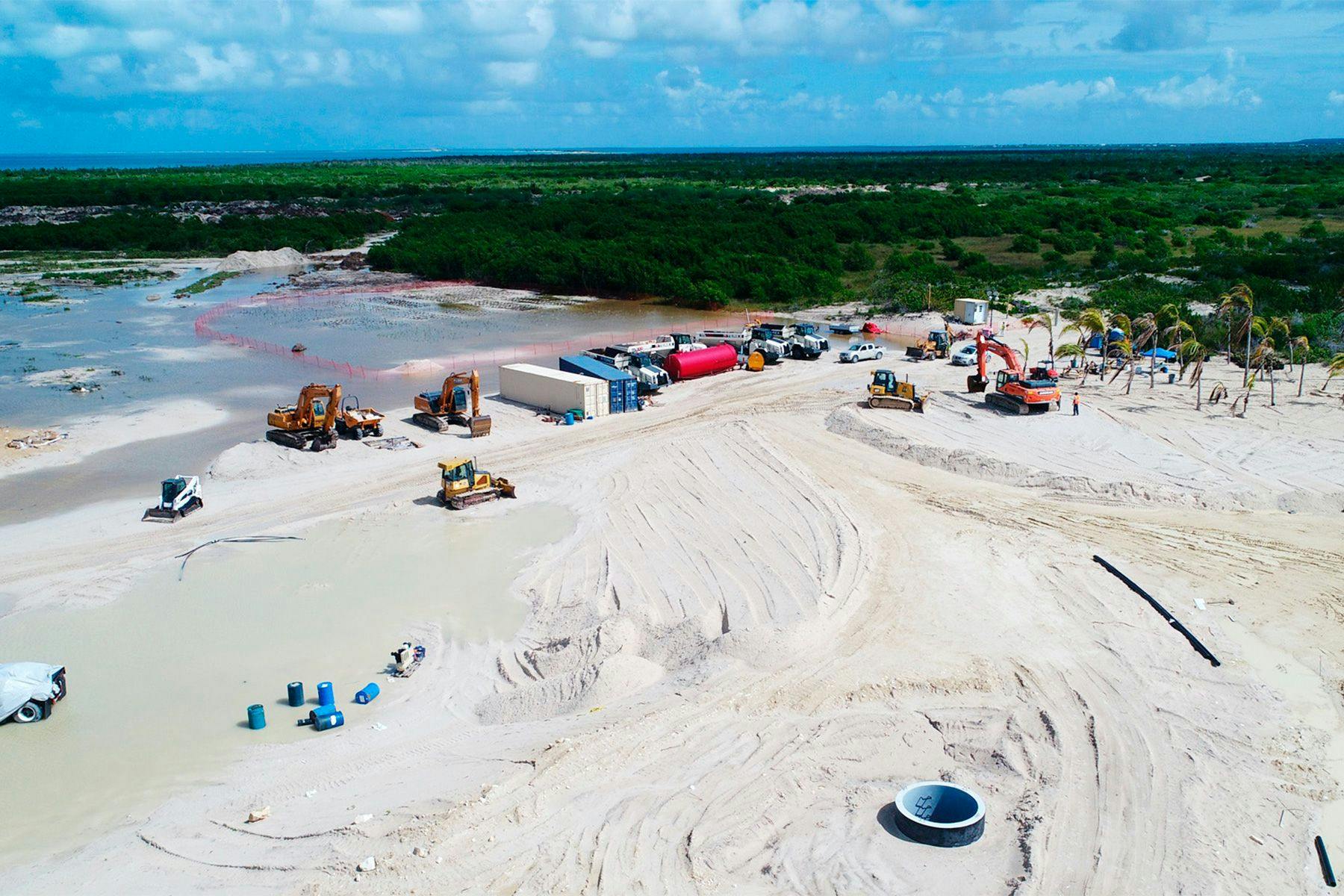
“The government of Antigua and Barbuda is pushing for Barbuda to become a destination for luxury tourism and is not hearing the requests made by the Barbuda Council to intervene, investigate, stop and disclose the state of the administrative authorization,” says Dr Tomaso Ferrando, a Research Professor at the Law and Development Research Group and Institute of Development Policy (IOB), University of Antwerp, and member of the Global Legal Action Network (GLAN), a non-profit organisation dealing with human rights violations and systemic injustice. “The Barbuda Land Act was amended twice, which means that the government of Antigua can dispose of the land with much less intervention by the council and the people of Barbuda, and some of the operations, namely the airport, started when the people were evacuated to Antigua following the 2017 Hurricane Irma and could not act.”
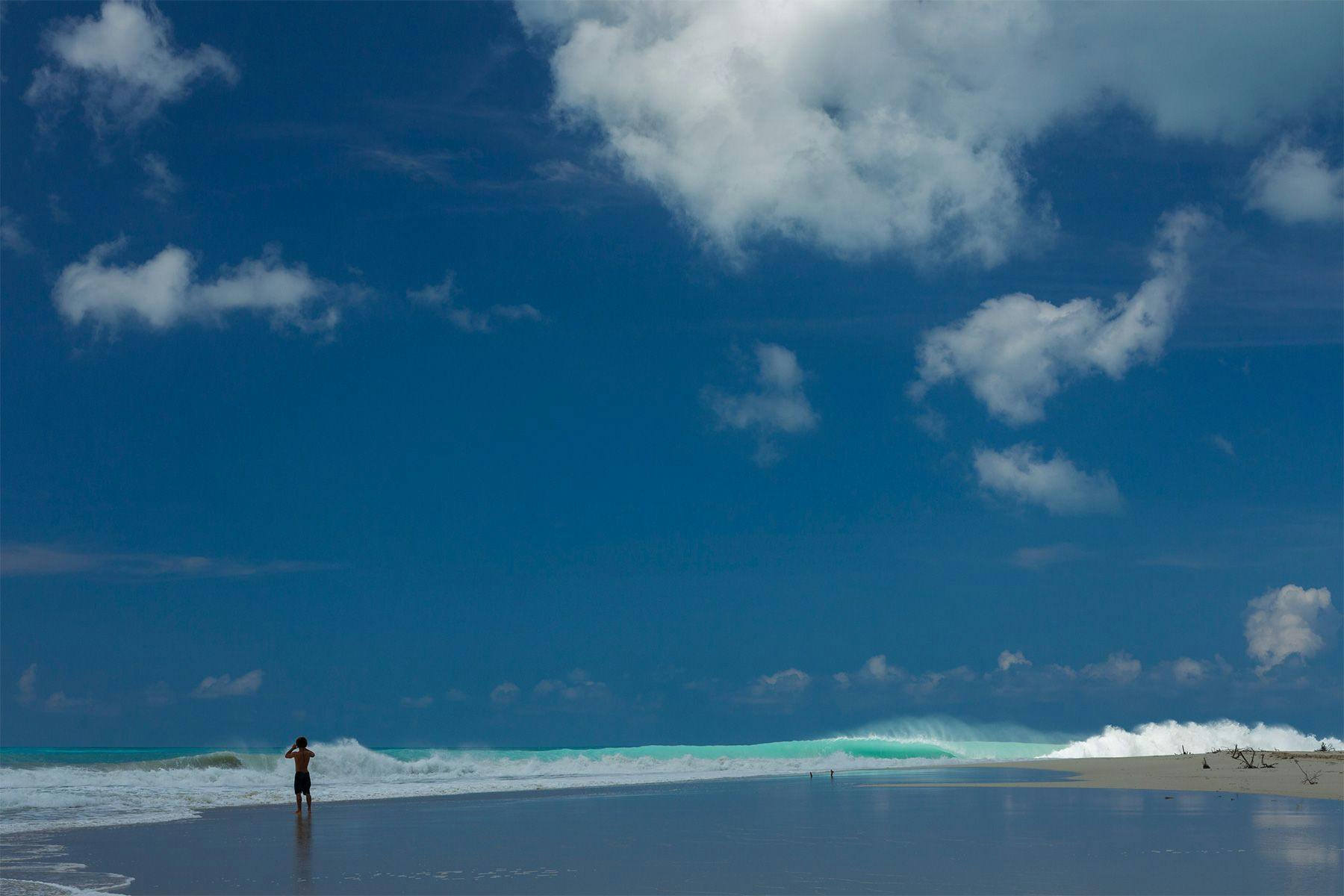
Ferrando also points out that even though the area is protected by an international treaty (The Ramsar Convention on Wetlands of International Importance Especially as Waterfowl Habitat), the Ramsar Secretariat has no enforcement power; it can only engage in political conversations with the government, whose sole obligation is to provide the secretariat with reports on the state of the wetlands. Yet, they haven’t received any information from Antigua and Barbuda since 2018, and the latest documents make no reference to any of the on-going developments. With the next COP coming up in April, Ferrando hopes that there will be references to the issue, and that the government will feel compelled to act. “One possible action is for the government to invite a Ramsar mission,” he says “However, the mission cannot go ahead if it’s not invited – hence the urgency for more visibility and pressure.”
“The declaration of the Codrington Lagoon National Park and attainment of the status of Ramsar site #1488 was one of our most progressive achievements. Today this achievement, earned through decades of collaborative work and millions of dollars worth of funding is now under threat of being reversed and lost as a result of the actions of those who believe that their monied wealth should supercede the rights of the many. The destruction of mangrove wetlands, coastal sand dunes and the critical ecosystems they sustain to make way for exclusive private luxury residences at Palmetto Point and Cedar Tree Point will have serious consequences for the marine resources of the island and the environment and people they sustain. These consequences will also extend to the neighbouring islands of the subregion. The leaching of effluents containing nutrients and chemicals into the waters of the lagoon and ocean is an example of one such consequence. The livelihoods of local fishers and tour guides will be put at risk. Barbuda could lose one of our most significant tourism treasures and the National bird. The Barbuda Council condemns the actions of the police against Barbudans who exercise their rights to question and protest these destructive real-estate schemes carried out in the name of ‘development’. Our members will continue to defend the rights of Barbudans to practise our system of common ownership of our lands and resources.”
–– Statement by the Barbuda Council to the Ramsar Secretariat
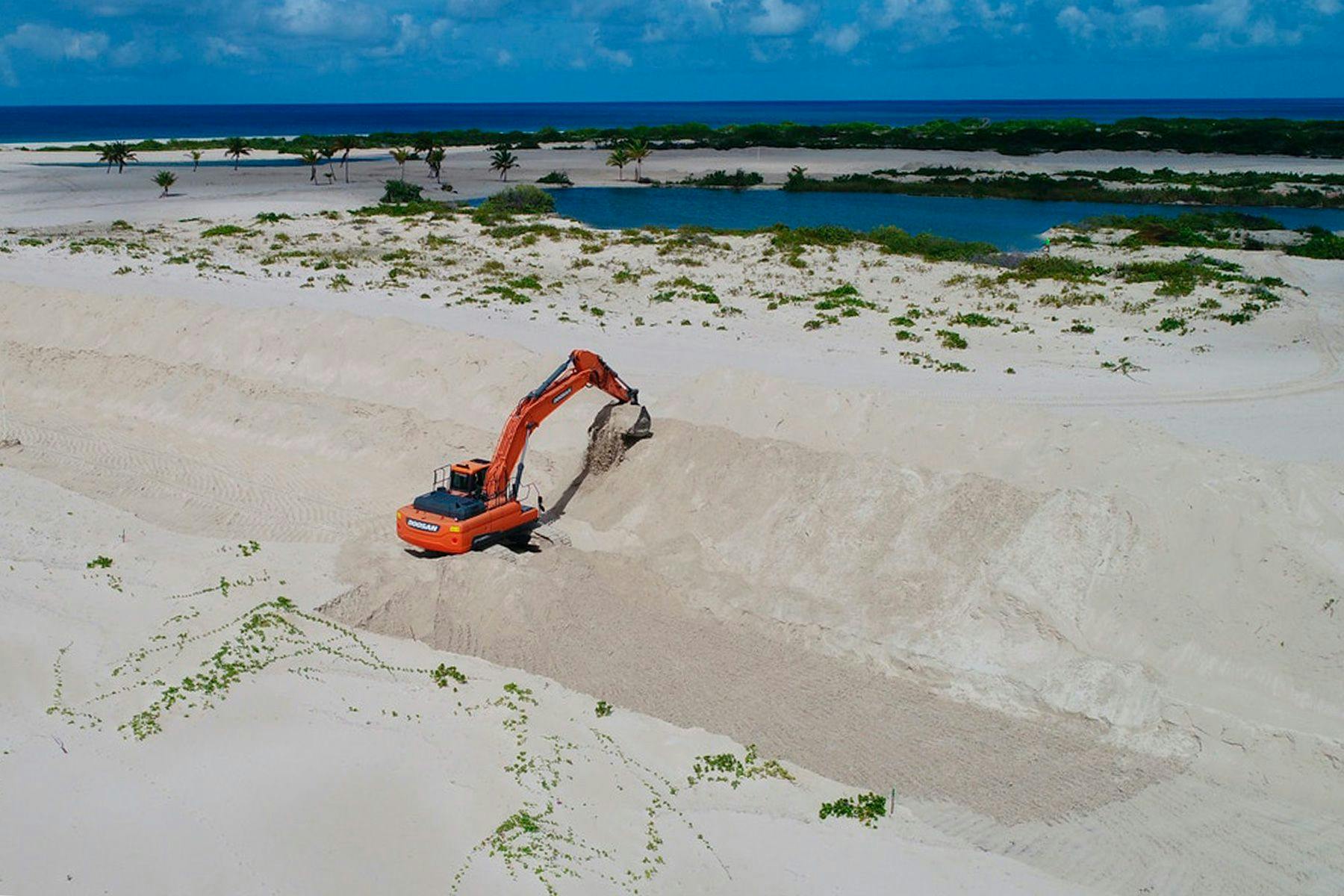
According to Ferrando, there are three significant legal cases in progress. The first was filed in 2018 by former Barbuda Senator, Mackenzie Frank, and Trevor Walker, the current MP for Barbuda, against the state. It concerns the 2014 Paradise Found Act, which was passed to smoothen the concession process linked to Paradise Found project (a Robert De Niro and James Packer joint venture), arguing that it goes against the constitution and deprives Barbudans and the Council of their control over concessions and disposition of the land. The appeal was set aside for lack of standing on the basis that the plaintiffs have no immediate right that is affected by the change in law and, therefore, no legitimacy to act.
The second case was brought by marine biologist John Mussington and Barbuda Council Chairperson, McKenzie Frank. It calls for judicial review of the process behind the new international airport, with the intent to halt the construction and declare its illegality based on the lack of environmental impact assessment and authorization by the Barbuda Council. In the preliminary phase, the plaintiffs requested an injunction and the disclosure of the EIA conducted before the constructions started, which the government refused. Again, the court of appeal concluded that the plaintiffs have no standing to ask for either.
The third was SLAPP (Strategic lawsuit against public participation) case brought by PLH against the Barbuda Council concerning its alleged allowing of illegal sand mining. The case was filed in October 2020, a couple of months after the council challenged the Palmetto Point development based on findings by the national Development Control Authority and the Department of Environment; the council rebutted the accusations by highlighting that PLH was not in compliance with its environmental obligations. At first, the court issued an order against PLH, barring them from any activity on Palmetto Point. But then it backtracked and removed the order, stating that the DoE and DCA are the ones responsible to decide on the environmental impact of the project. No evidence of illegal sand mining was found.
The last case hasn’t been appealed, but the first two were brought before the Privy Council, the highest court of appeal for sovereign nations of the United Kingdom, hopefully to be heard in 2022. Indeed, the decisions of the Privy Council are key, for if the Paradise Found Act is against the constitution, the same should be for the subsequent reforms to the Barbuda Land Act that have been voted by the Antigua government to facilitate investments. The result would be systemic repercussions on the legality of the Barbuda Ocean Club and the airport as well as other developments currently taking place at Coco Point and Cedar Tree Point.
“This is a clear violation of the right to justice and a procedural justification rather than a substantive engagement,” emphasises Ferrando. “But more importantly, it’s a misrecognition of the collective nature of land tenure in Barbuda, where a change to the regime affects the whole community, not only members who are directly touched, let us say, by the new concession. More legal cases can be foreseen. The Barbuda Council and GLAN intend to leave no stone unturned.”
Should construction plans go ahead, it will also impact the wave in four major ways. Firstly, given that the array of factors responsible for delivering the perfect right-handers of Palmetto Point are as fragile as the surrounding ecosystem, any abrupt alteration to the coastal morphology will affect the bathymetry, tidal patterns, ocean currents, and so on. Secondly, an exclusive resort is what it says it is – exclusive; which means surfers who were once able to camp on the shore might struggle to even access the beach. Thirdly, the tons of construction waste and debris have to go somewhere, and it is not far-fetched to assume that a percentage will end up in the ocean. Finally, transfiguring the nearshore area is tantamount to fiddling with a buffer zone, which compromises coastal defences against natural disasters and rising seas and which, in the long run, may cause the wave to disappear altogether.
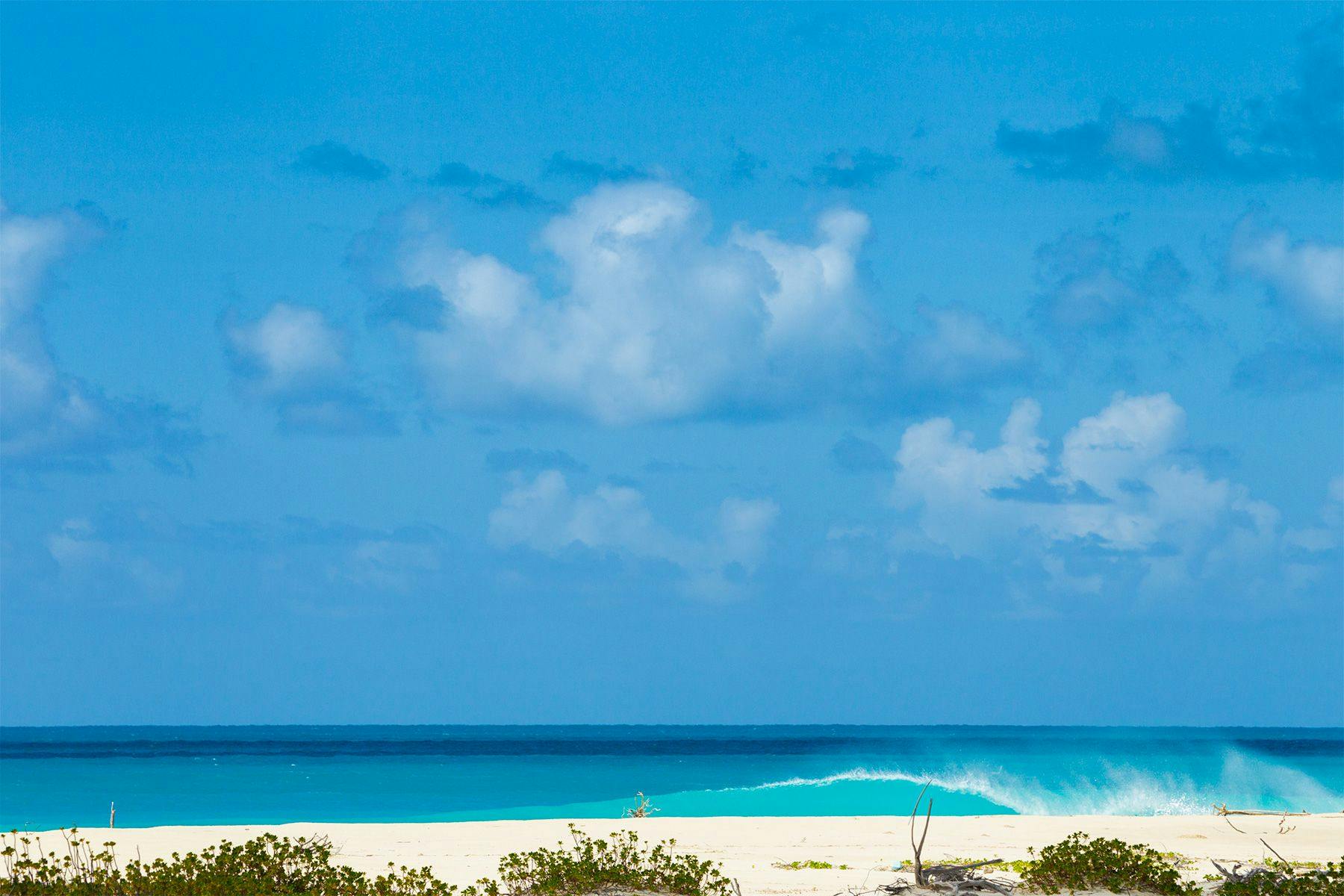
All that said, what makes the case of Barbuda critical is that it comes at a time (or perhaps past a time) when we can neither afford ecological nor socio-political negligence – especially not in favour of superfluous and extravagant beach-front villas to serve an affluent few. Especially not on a hurricane prone island with scarce groundwater resources, fragile ecosystems, endangered species, and a tiny population recovering from the blows of the pandemic, whose freedom for deciding what happens to the land they live in also hangs by a thread.
“It will take international visibility and pressure on the government, the investors, the buyers, the Caribbean Development Bank that is funding the government of Antigua climate change mitigation and adaptation plans, as well as more legal support, and the victory in the aforementioned Privy Council,” highlights Ferrando. “Time and power are not on the side of the Barbudans. So it’s essential to act promptly and in an internationally coordinated way.”
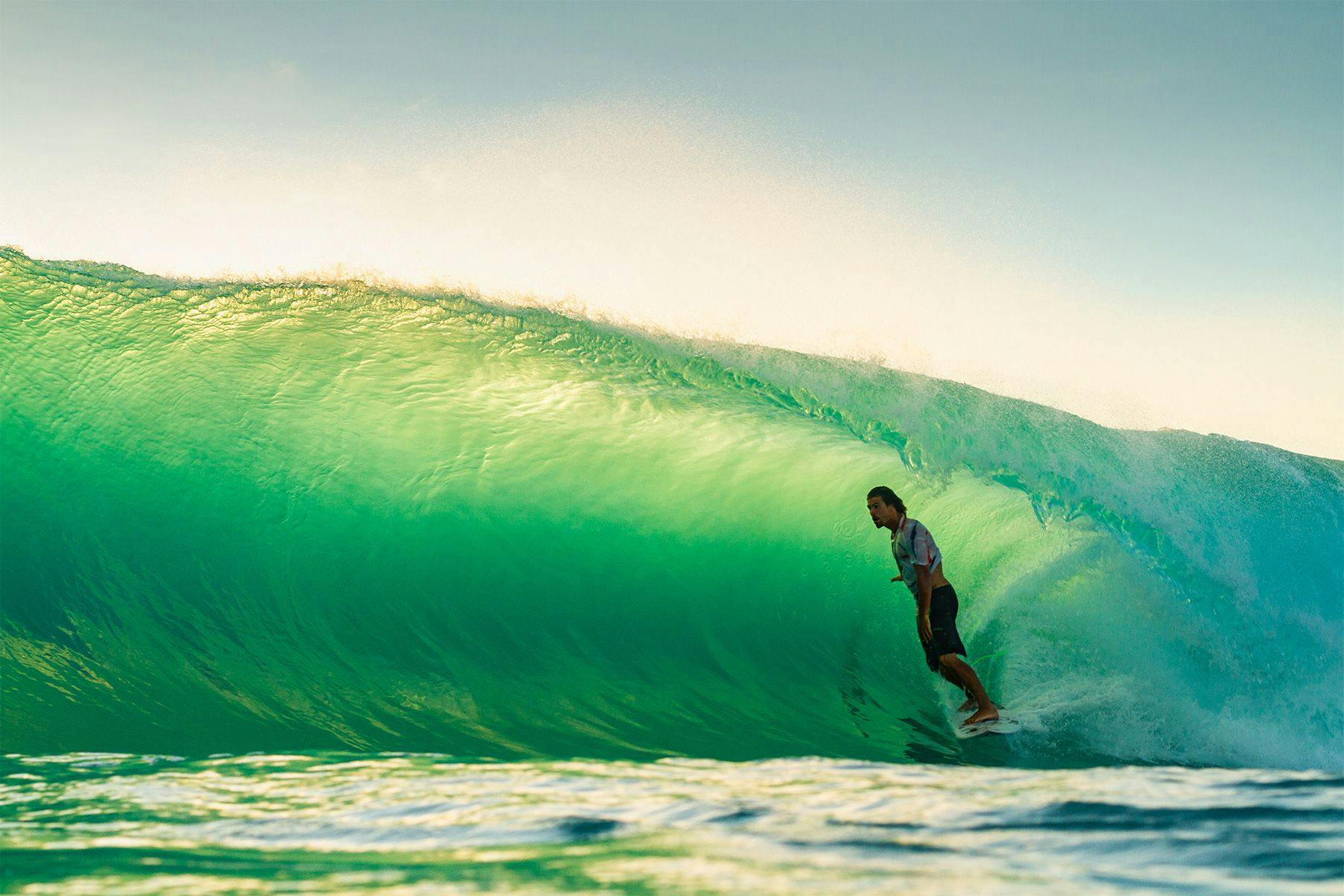
The author and Surf Simply would like to thank Dr Tomaso Ferrando and Al Mackinnon for their assistance with the article. Visit SaveBarbuda’s website to learn more and take action and/or follow SaveBarbuda on Instagram to stay up to speed on the developments.